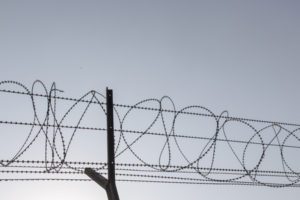
Note that the unlawful possession of a firearm conviction carries not only mandatory jail time, but also a mandatory period of parole ineligibility. Thus, a domestic violence complaint with no underlying criminal offense can quickly provide the basis for a very serious criminal charge in cases in which the defendant delays in turning over their firearm(s) in the face of a court order.
Further, when a temporary restraining order requires the surrender of any firearm or other weapon and when a final restraining order is issued, the bill requires a law enforcement officer to accompany the defendant or proceed without the defendant if necessary to where the firearm or other weapon is located to ensure that the items are appropriately surrendered in accordance with the order. If the order prohibits the defendant from returning to a location where firearms or other weapons are located, any firearm or other weapon located there will be seized by a law enforcement officer.
Finally, the bill further strengthens protections for victims of domestic violence by providing mandatory minimum terms of incarceration, with set periods of parole ineligibility, for offenders who commit physically violent acts.
Under the provisions of the bill, a person convicted of any of the following crimes of domestic violence would be subject to the enhanced penalties provided in the bill:
(1) Homicide, pursuant to N.J.S.2C:11-1 et seq.;
(2) Aggravated assault and assault by auto or vessel pursuant to subsection b. and c. of N.J.S.2C:12-1;
(3) Kidnapping, pursuant to N.J.S.2C:13-1;
(4) Criminal restraint, pursuant to N.J.S.2C:13-2;
(5) Sexual assault, pursuant to N.J.S.2C:14-2; and
(6) Criminal sexual contact, pursuant to N.J.S.2C:14-3.
The bill provides that a person will be sentenced to a term of imprisonment as follows: 18 months for a second or subsequent crime of the fourth degree, five years for a second or subsequent crime of the third degree, 10 years for a crime of the second degree, and 20 years for a crime of the first degree, unless the provisions of any other law provide for a higher mandatory minimum term.
The court additionally will impose a period of parole ineligibility as follows: 18 months for a crime of the fourth degree, 42 months for a crime of the third degree, five years for a crime of the second degree, and 10 years for a crime of the first degree.
